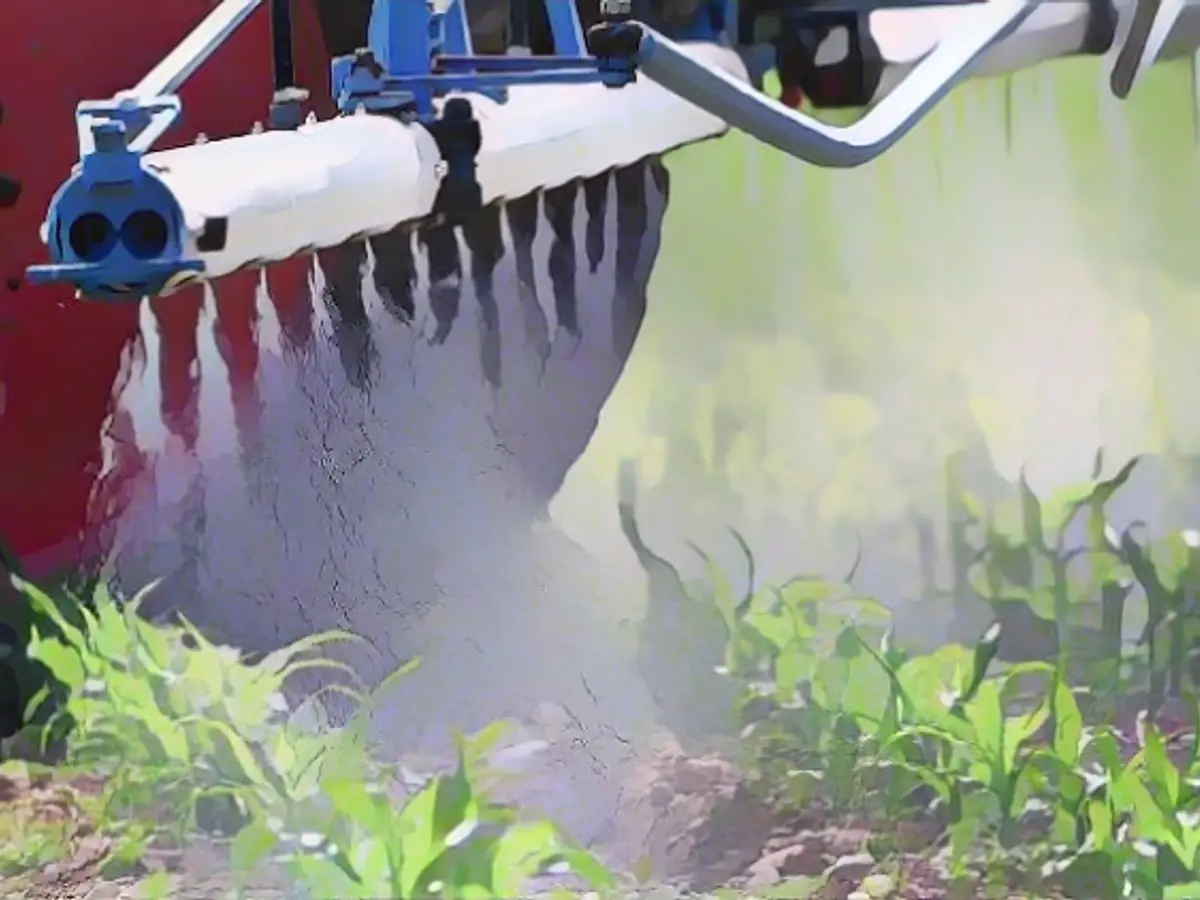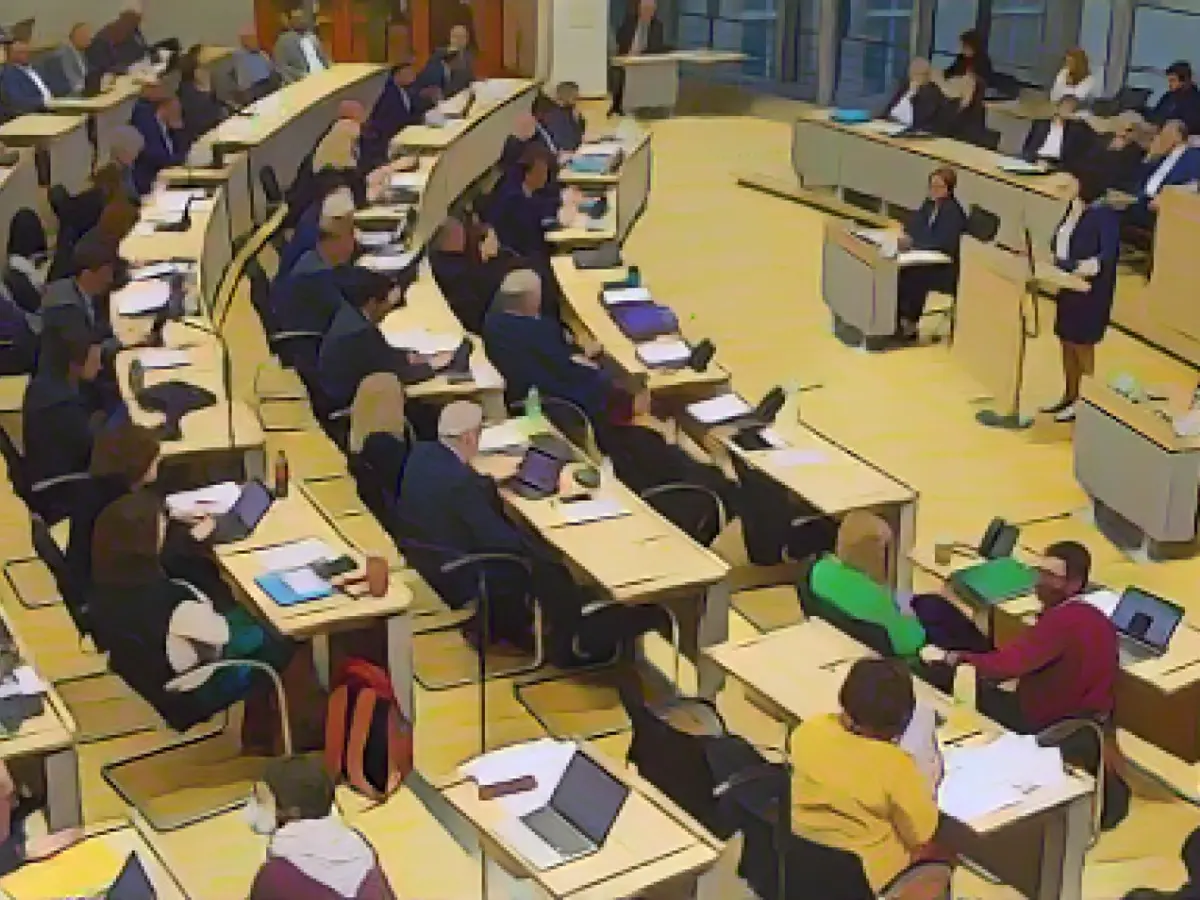Glyphosate Controversy Resumes in EU: Özdemir to Implement Renewed Approval in Germany
Germany will once again permit the utilization of controversial weedkiller glyphosate, following the EU's recent approval extension until 2033. Federal Minister of Agriculture Cem Özdemir, a Green politician, has been tasked with implementing this decision by January 1, 2024, despite his reservations about the product's impact on biodiversity and potential links to cancer.
The controversy surrounding glyphosate remains far from over, with ongoing debates about its cancerous properties and environmental risks. A comprehensive investigation by the European Food Safety Authority (EFSA) revealed no unacceptable risks, albeit with data gaps in several areas.
Impacts on Coalition and German Politics
The decision to extend glyphosate's EU approval was met with disagreement within Germany's coalition, with the FDP supporting its use and the Greens opposing it. Özdemir must navigate this contentious subject within his party, balancing opposing viewpoints and enacting the new regulation.
Scientific Controversies
Cancer Concerns
The International Agency for Research on Cancer (IARC) classifies glyphosate as "probably carcinogenic to humans." However, contradictory findings from other regulatory agencies have sparked ongoing debates about its safety.
New Evidence
Recent studies suggest new links between glyphosate and cancer at levels considered safe, exacerbating concerns among researchers.
Political Perspectives in Germany
SPD (Social Democratic Party)
The SPD supports glyphosate, acknowledging its value in agriculture but advocating for stricter regulations and research into its long-term effects.
FDP (Free Democratic Party)
The FDP is more skeptical about glyphosate, often aligning with environmental concerns and pushing for stricter controls and alternatives.
Greens
The Greens strongly oppose glyphosate due to health and environmental concerns, often referencing the IARC classification and recent scientific studies in their arguments.
Industry Response
The agricultural industry, particularly Bayer, has defended glyphosate, underscoring its importance in modern agriculture and refuting its demonization as part of a larger campaign against genetically modified organisms (GMOs).
Despite the renewed EU approval of glyphosate, controversy remains high, with ongoing scientific debates, political divisions, and industry defense dominating the agricultural landscape. This unfolding drama will undoubtedly shape the agricultural landscape for years to come.
[Source: ]
Enrichment Data
- The extended EU approval of glyphosate until 2033 is a highly debated topic, with scientific controversies and political disagreements over its safety, usage, and regulations in various countries.
- The IARC's classification of glyphosate as "probably carcinogenic to humans" has served as a key point of contention, with other regulatory agencies providing contradictory findings.
- Numerous risks to human health, including cancer, and environmental consequences have been associated with glyphosate. Recent studies identifying links between glyphosate and cancer at supposedly safe levels have heightened concerns among researchers.
- The agricultural industry, primarily represented by companies like Bayer, has backed glyphosate's safety, emphasizing its critical role in modern agriculture and refuting the herbicide's perceived demonization as part of an anti-GMO campaign.
- Coalition parties in Germany, including the SPD and FDP, hold varying viewpoints on glyphosate's usage, with the SPD advocating for stricter regulations and the FDP championing stricter controls and alternatives. The Greens, however, strongly oppose its use and advocate for its complete ban due to health and environmental concerns.
[1] Keywords: glyphosate, approval, EU, controversy, ban, side effects, Agriculture Minister Özdemir, Federal Minister, permanency of approval, tens of years, extension, ongoing debate. [2] Keywords: IARC, classification, carcinogenic to humans, regulatory agencies, contradictory findings, ongoing debates, agricultural importance, modern agriculture, Bayer, serious health risks, environmental consequences, recent studies, cancer linkages, controversial usage, political disagreements, various countries, varying viewpoints, coalition parties, SPD, FDP, Greens, ban advocacy, stricter regulations, alternatives, health and environmental concerns. [3] Keywords: disputes, biodiversity impact, cancer links, data gaps, extensive investigation, European Food Safety Authority (EFSA), inconsistencies, evidence-based decision making, public health, industrial defense, GMO campaign, consumer awareness, scientific debates, political divisions.








